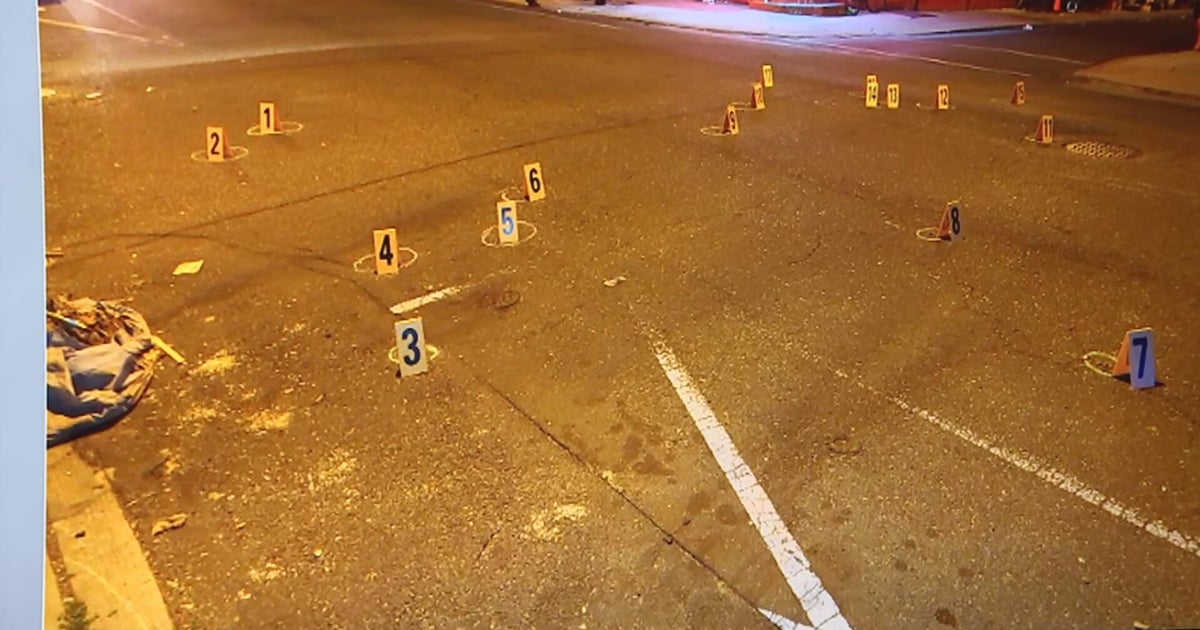Whooping Cough On The Rise In South Florida
MIAMI (CBSMiami) – Students in Broward and Miami-Dade public schools are required to do it. Doctors warn against skipping it.
Despite those facts, fewer South Floridians are getting vaccinations for whooping cough, and CBS4 news partner The Miami Herald reports cases in 2012 have skyrocketed.
For Jan. 1 – July 9:
• Miami-Dade County: 26 confirmed, 10 probable (2011: 32 confirmed)
• Broward County: 26 confirmed, 2 probable (2011: 1 confirmed)
Source: Aaron Keller, Public Information Specialist for Fla. Dept. of Health
Note that Miami-Dade's 26 confirmed cases don't include cases to be reported during the remainder of 2012.
"More and more people are choosing not to vaccinate their children," said Dr. Peter Antevy, pediatric emergency physician at Joe DiMaggio Children's Hospital in Hollywood. "That leaves their families really exposed."
Also known also as pertussis, whooping cough is a contagious respiratory disease that spreads when those with the infection cough or sneeze near others. One sign of whooping cough is a cough that doesn't subside within a few days.
For kids, teenagers, adults and the elderly, pertussis can merely be a bad cough. However, the risk of contagion is still high because it lasts for about three months. Some people try to continue their day-top-day life at school or work without realizing they're putting others at risk.
In more extreme cases, whooping cough can lead to pneumonia, seizures, shock, even death.
Children younger than 1 are the most vulnerable, said Antevy, the hospital physician.
Though the coughing can be minimal or absent in infants, whooping cough can still cause pauses in breathing, Dr. Paula Thaqi, director of the Broward County Health Department, said by email.
The number of cases spike every two to three years, with the last major surge in Florida occurring in 2009. According to the Florida Department of Health's Bureau of Epidemiology, Florida had 497 cases that year.
On the lower end of the spectrum, 2010 and 2011 had 328 and 312 cases, respectively.
From the beginning of this year to July 7, the state Department of Health has confirmed 273 cases.
Nationwide trends mirror those in South Florida. This year alone — through June 16 — there have been 13,946 cases across the United States, a twofold increase since 2011.
Medical experts say whooping cough is highly preventable with a vaccination, which includes administering DTP vaccines to children in five different doses: at 2 months old, 4 months, 6 months, between 15 and 18 months, and between 4 and 6 years.
One option is vaccinating the child with Tdap late in the mother's pregnancy or immediately after birth, a strategy doctors call cocooning. Medical professionals also recommend having all other members of the immediate family vaccinated.
However useful they can be, vaccinations are not entirely flawless, medical professionals explain.
"Pertussis vaccines are very effective, but no vaccine is 100 percent effective," Thaqi said. "With pertussis circulating in the community, there is a chance that a fully vaccinated person, of any age, can become infected."
One reason many parents refrain from vaccinating their kids: they fear detrimental side effects.
Eleven years ago, Wendy Callahan from Hawthorne in Central Florida, had her 2-year-old son vaccinated for whooping cough. He subsequently experienced seizures eight times a day for three months, she said.
Callahan blames the increase in whooping cough cases on the vaccine itself.
"Not only are they dangerous, they do not work," she said. "You can't poison yourself into health — vaccines are absolute poison."
Though she does not have formal medical training, Callahan said she regularly reads medical journals about vaccines. She encourages parents to bypass school mandatory vaccinations for their children by requesting religious exemptions.
Of the 312 cases in Florida last year, there was no record of vaccination in 54.5 percent of them.
"I have seen deaths from pertussis in my years," Antevy said, "and it's very sad to see a child die from a preventable disease."
(©2012 CBS Local Media, a division of CBS Radio Inc. All rights reserved. This material may not be published, broadcast, rewritten, or redistributed. CBS4 news partner The Miami Herald contributed material for this report.)







